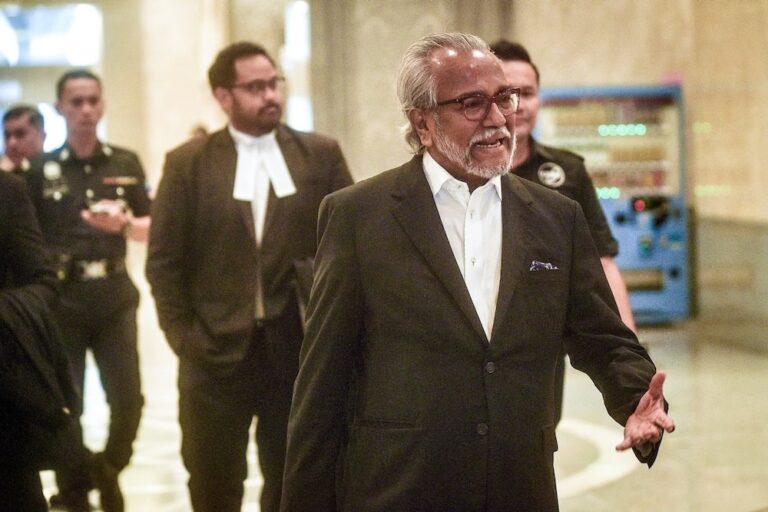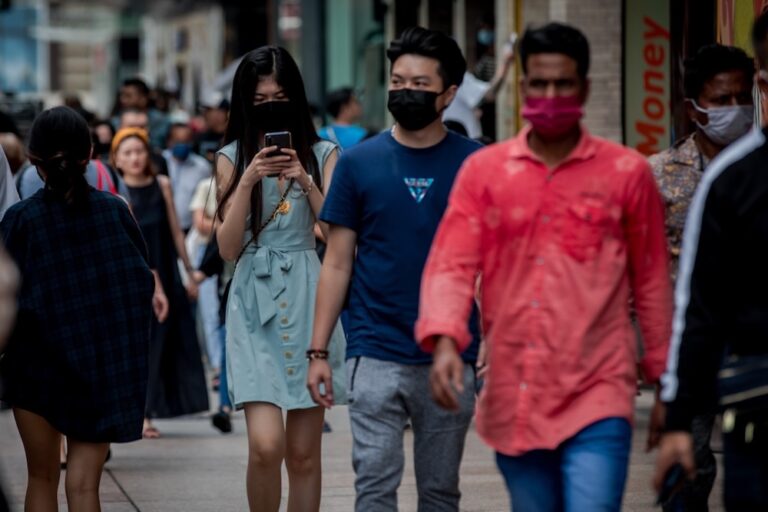(SEAPA/IFEX) – SEAPA has expressed renewed concern over the continuing investigation of Malaysian blogger Jeff Ooi, saying the case has adverse implications for the Internet and free speech in Malaysia. SEAPA, citing a report from the Centre for Independent Journalism (CIJ) in Kuala Lumpur, said Ooi was questioned by police for two hours on 28 […]
(SEAPA/IFEX) – SEAPA has expressed renewed concern over the continuing investigation of Malaysian blogger Jeff Ooi, saying the case has adverse implications for the Internet and free speech in Malaysia.
SEAPA, citing a report from the Centre for Independent Journalism (CIJ) in Kuala Lumpur, said Ooi was questioned by police for two hours on 28 February in connection with a controversial 30 September 2004 posting on his Screenshots blog (http://www.jeffooi.com).
CIJ said Selangor State Criminal Investigation Department’s (CID) Chief Senior Assistant Commander II, Hadi Ho had confirmed that Ooi was being investigated under Section 298A of the Penal Code relating to acts fostering “religious disunity”, which carries a penalty of two to five years imprisonment. CIJ noted, however, that the Malaysian Supreme Court had in 1987 declared this section of the Penal Code unconstitutional.
During the two-hour questioning by Senior Investigating Officer ASP Ratnakumar, Ooi was asked when and why he started blogging. He was also asked about a 2 October 2004 front page story in a Malay daily, which accused him of “failing to control the [Screenshots] forum by allowing an opinion ridiculing Islam to be published.”
That story referred to an anonymous posting on Ooi’s weblog that angered readers and officials in Malaysia who saw it as blasphemous. Ooi himself, as owner and administrator of the website, took down the posting and barred the anonymous writer (a user writing under the name of “Anwar”) from future discussions.
Nevertheless, in 2004, Ooi was threatened with detention under the Internal Security Act (ISA), which allows for imprisonment without trial for up to two years. He was also threatened with prosecution under the Sedition Act. CIJ has reported that Ooi was told these investigations are continuing.
SEAPA and CIJ view this case as an attempt to harass Ooi and other website owners and operators in Malaysia, and to curtail freedom of expression on the Internet.
“The use of the Sedition Act, the Internal Security Act, and now a dubious, supposedly voided clause of the Penal Code to intimidate Mr. Ooi in fact lays bare Malaysia’s intent to run around Kuala Lumpur’s own pledge to never censor the Internet,” SEAPA executive director Roby Alampay said. SEAPA noted that former prime minister Mahathir Mohammad had vowed to maintain the integrity of cyberspace and to never intervene in the management of its content.
Despite its economic strength, Malaysia remains a politically restrictive society where government maintains a strict hold over the flow of news and information, and over all forms of mass communication. Much of the print and broadcast media is state-owned and media outlets must submit to strict licensing rules and face intolerance for political criticism.
SEAPA noted that, for now, the Internet is the most viable medium for independent news and information in Malaysia.
Mahathir had committed to leaving the Internet space relatively untouched, and as a result, the web now plays host to a handful of alternative and independent news outlets, such as http://www.malaysiakini.com. These news providers are constantly pushing the boundaries of free expression in Malaysia, testing and exploiting the virtual space that Mahathir had vowed to respect.
“It should be noted that censorship of the Internet was explicitly rejected in the Communications and Multimedia Act 2001,” CIJ said in a statement.
Now SEAPA and CIJ are concerned that the Malaysian government has found an excuse to influence web content as well. The organisations are concerned that the very suggestion of using the ISA and sedition laws against a webmaster may have a chilling effect on other content providers.
SEAPA joined CIJ in calling for all investigations against Ooi to be halted, and in urging the Malaysian government to institute legal protection for freedom of expression in the country.


